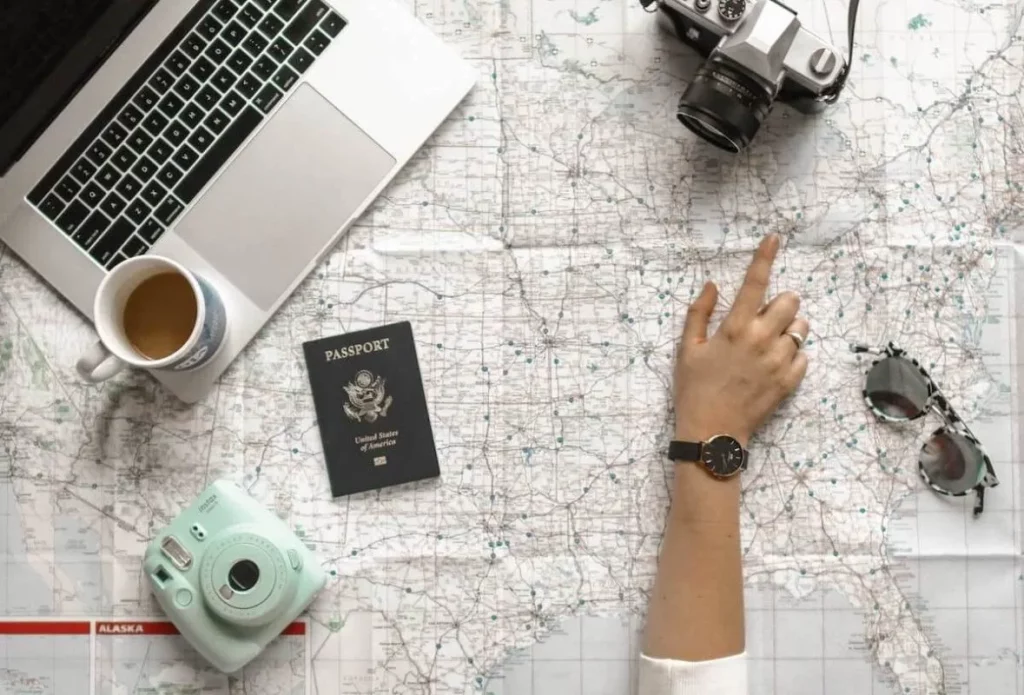Are you feeling overwhelmed with the task of planning your next trip? It can be a daunting process, but fear not! With the right resources and guidance, you can easily plan your dream vacation from start to finish. Let me share with you my top tips for plan your trip.
Step 1: Narrow down your options. With so many amazing destinations to choose from, it can be difficult to decide where to go. Start by considering your budget, time constraints, and personal preferences. Do you want a beach getaway or a cultural experience? Once you have a general idea, you can move on to step two.
Step 2: Research, research, research. The internet is a vast sea of information, but it’s important to know where to find reliable sources. Don’t just rely on one website or review – cross-reference multiple sources to get a well-rounded understanding of your destination. And don’t forget to check out travel blogs and forums for insider tips and recommendations.
Step 3: Learn from others’ mistakes. As a seasoned traveler, I’ve made my fair share of rookie mistakes. But you don’t have to! Take advantage of my experience and avoid common pitfalls by reading my posts on planning. I’ll share my lessons learned and help you avoid any unnecessary stress during your trip.
With these steps in mind, you’ll be well on your way to planning the perfect trip. So don’t stress, just follow these tips and get ready for an unforgettable adventure! Now, let’s dive into the details.

Choosing Destination in Your Trip Plan
Budget and Time Constraints
The first step in planning your trip is to determine your budget and time constraints. These two factors will greatly influence your destination options. If you have a limited budget, consider traveling during off-peak seasons or choosing a more affordable location. If you only have a short amount of time, focus on destinations that are closer to home or offer shorter travel times.
Personal Preferences
Next, think about what type of vacation you want. Are you looking for a relaxing beach getaway or an adventurous trek through the mountains? Do you want to immerse yourself in a new culture or indulge in luxury accommodations? Consider your personal preferences and choose a destination that aligns with them.
Researching Destinations for Plan Your Trip
Once you have a general idea of your budget, time constraints, and personal preferences, it’s time to start researching potential destinations. Use reliable sources such as travel websites, guidebooks, and blogs to gather information on each location. Look for things like weather patterns, popular attractions, and local customs. This will help you narrow down your options and make an informed decision.

Creating a Budget For Plan Your Trip
Transportation Costs
Transportation costs can often be one of the biggest expenses when planning a trip. Whether you’re flying, taking a train, or renting a car, it’s important to factor in these costs when creating your budget. Be sure to research different transportation options and compare prices to find the most cost-effective option.
Accommodation Costs
Another major expense to consider is accommodation. Depending on your budget and preferences, you may choose to stay in a hotel, hostel, Airbnb, or even camp. Again, research different options and compare prices to find the best fit for your budget.
Daily Expenses
Don’t forget to budget for daily expenses such as food, activities, and souvenirs. Look into the cost of meals and attractions in your chosen destination to get an idea of how much you’ll need to budget for each day.

Planning Your Itinerary
Must-See Attractions
Now that you have your destination and budget in mind, it’s time to start planning your itinerary. Start by making a list of must-see attractions and activities in your chosen location. This could include famous landmarks, museums, or outdoor adventures. Prioritize these based on your personal interests and budget.
Off-the-Beaten-Path Experiences
While popular attractions are a must-see, don’t forget to leave room in your itinerary for off-the-beaten-path experiences. These can often be more authentic and less crowded, giving you a unique perspective on your destination. Research local events, markets, and hidden gems to add some variety to your trip. plan your trip.
Time Management
When planning your itinerary, it’s important to consider travel time between activities and allow for some flexibility. Don’t try to cram too many things into one day, as this can lead to exhaustion and disappointment if you’re unable to see everything. Leave some downtime for rest and relaxation, and be open to changing your plans if needed.

Booking Your Trip
Flights and Accommodation
Once you have your itinerary planned, it’s time to book your trip. Start by booking your flights and accommodation, as these tend to fill up quickly. Be sure to read reviews and compare prices to find the best deals. Consider using travel websites or apps to save money on flights and accommodations.
Travel Insurance
Travel insurance is often overlooked, but it’s an important aspect of trip planning. It can protect you from unexpected expenses such as flight cancellations, lost luggage, or medical emergencies. Research different insurance options and choose one that fits your needs and budget. plan your trip.
Packing Essentials
Before you head off on your trip, make sure you have all the necessary items packed. This includes travel documents, appropriate clothing for the destination’s weather, and any medications or toiletries you may need. Consider making a packing list to ensure you don’t forget anything important.
Staying Safe While Traveling
Research Local Laws and Customs
Before traveling to a new destination, it’s important to research local laws and customs. This will help you avoid any cultural faux pas or legal issues. For example, some countries have strict dress codes or certain behaviors that are considered offensive.
Stay Aware of Your Surroundings
While traveling, it’s important to stay aware of your surroundings and trust your instincts. Avoid walking alone at night in unfamiliar areas and be cautious when using public transportation. Keep your valuables secure and be mindful of pickpockets in crowded tourist areas.
Emergency Contact Information
In case of an emergency, it’s important to have contact information for your embassy or consulate in the country you’re visiting. It’s also a good idea to leave a copy of your itinerary with a trusted friend or family member back home. This way, they can reach you in case of an emergency.

FAQs for Planning Your Trip
Q: How far in advance should I start planning my trip?
A: It’s recommended to start planning at least 3-6 months in advance, especially if you’re traveling during peak season or to a popular destination.
Q: Is it better to book flights and accommodations separately or as a package?
A: It depends on the destination and time of year. Sometimes booking a package deal can save you money, but other times it may be cheaper to book separately. Do your research and compare prices to find the best option.
Q: Should I exchange currency before my trip?
A: It’s usually best to exchange some currency before your trip, but not all of it. You can also use ATMs or credit cards while traveling, but be aware of any foreign transaction fees.
Q: How can I save money on my trip?
A: There are many ways to save money while traveling, such as booking in advance, using public transportation, and staying in budget accommodations. Researching and comparing prices is key to finding the best deals.
Q: Is it safe to travel alone?
A: It’s generally safe to travel alone, but it’s important to take precautions and stay aware of your surroundings. Consider joining a group tour or staying in hostels to meet other travelers and have company while exploring.
Planning a trip may seem overwhelming, but with these tips and resources, you can easily plan your dream vacation. Remember to research your destination, create a budget, plan your itinerary, book your trip, and stay safe while traveling. And don’t forget to leave room for spontaneity and unexpected adventures! Happy travels!
